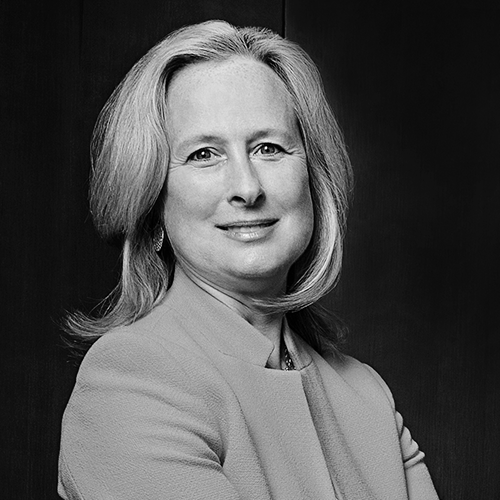Few companies in the music industry are as pervasive as genre-spanning Live Nation Entertainment. Anyone who has ever visited a major concert venue, bought tickets online, or traversed a music festival has likely done so by utilizing one of the many platforms the company uses to connect artists with fans.
But that hasn’t always been the case. When Michael Rowles, executive vice president and general counsel, joined Live Nation in 2006, it was unrecognizable from its current form.
At the time, the company was in the midst of a rebrand and was divesting its nonessential live entertainment assets associated with its predecessor, Clear Channel Communications, in favor of a more focused model geared toward the live music industry. It was a transitional period for Live Nation, and like the rest of the company, Rowles’s new legal department needed restructuring.
“I joined right at the outset, when we had just begun branding with the ‘Live Nation’ name,” he says. “From a legal standpoint, there was no corporate infrastructure—most of the former department had been let go. So my initial task was to plug the dam and build a new legal team.”
In the years since, Rowles has built a legal infrastructure that resembles a medium-size law firm. Live Nation currently has thirty-eight in-house lawyers, and many specialize in both music and other areas, including corporate governance, intellectual property, mergers and acquisitions, and litigation.
As the business side has evolved, Rowles has kept pace. When Live Nation agreed to merge with event ticketing company Ticketmaster in 2009, a deal which would “double our size overnight,” Rowles was charged with working with the US Department of Justice to establish a consent decree—a process that took an entire year, he says.
Today, Live Nation is an entertainment force to be reckoned with, and Rowles oversees the legal function of all four of its primary businesses: Ticketmaster.com, a ticketing and e-commerce website; Live Nation Concerts, which produces more than 25,000 live shows annually; Artist Nation, a management company that represents more than 250 artists; and Live Nation Network, a marketing solutions company.
Live Nation is the only company in the live music industry that touches all of those areas, so much of Rowles’s responsibility lies in navigating diverse challenges, he says. But he enjoys the work.
“The music industry is fascinating, dynamic, and ever-changing,” he says. “Twenty years ago, artists went on tour to promote their albums—today, they go on tour to make a living. Live music is changing the industry, and I’ve really enjoyed being in the middle of that evolution.”
This isn’t Rowles’s first stint as the chief legal officer of a media company. Before joining Live Nation, he worked as the general counsel for Entravision Communications Corporation, a Spanish-language media company located in Santa Monica, California. Before that, he was a partner in a San Diego-based private law firm, where he specialized in corporate securities and mergers and acquisitions.
“The music industry is fascinating, dynamic, and ever-changing.”
Though Live Nation was only a few months old when Chief Executive Officer Michael Rapino offered Rowles the head legal position, Rowles jumped at the opportunity. “I was so intrigued,” he says. “I knew it was going to be a fascinating business, and [Rapino’s] vision was inspiring. But more than anything, I knew we were uniquely positioned to succeed.”
A decade later, Rowles has seen the music industry and the legal function transform simultaneously. As both continue to evolve, new challenges arise.
Today, one of Rowles’s primary initiatives is to oversee data and cybersecurity efforts, an emerging priority for most large companies.
It’s particularly critical for Live Nation, which collects data from customers through channels of its e-commerce businesses.
Protecting company interests from “smart people with bad intentions” is an ever-evolving challenge, and Live Nation has a designated and highly sophisticated cybersecurity team, Rowles says.
“No one wants to be the next company to experience a major hacking scandal,” he says. “A data breach can be a financial disaster, and it can jeopardize the trust your clients have in you.
“There are new challenges every day,” he adds, “but we value our customers’ data and protect that data vigorously.”
Rowles leadership has also evolved in the ten years he’s been with Live Nation. He’s learned to hire smart people and to resist micromanaging his roster of lawyers, he says.
Rowles adds that his legal philosophy is simple: stay in-house as much as possible.
“I don’t think [a company like ours] will ever completely eliminate outside counsel, but I try to keep as much in-house as I can,” he says. “Our business is tricky and hard to learn. Once you get lawyers who know how it works, it is difficult to replicate their skill sets.”
LIVE NATION: BY THE NUMBERS
2009
year the definitive merger agreement was announced
2010
year the Justice Department approved the merger (January)
$899M
value of deal
$2.5B
estimated combined enterprise value of Live Nation Entertainment, the product of the merger
$40M
estimated revenue of new company by combining ticketing, marketing data centers, and admin functions
50%
of the combined company belonged to Live Nation shareholders; the other half, to Ticketmaster
SOURCE: LIVE NATION ENTERTAINMENT


